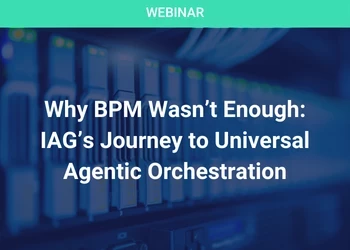Roundtable: Transcend the Transactional - Ways to make your shared services indispensible
Add bookmark
* View all content in the Equaterra Series: From Transactional to Exceptional; A Guide to Shared Services Success
* View Part I of Equaterra Roundtable
* View Part 3 of Equaterra Roundtable
Innovation: An overused word or the Driver in Shared Services?
VN: I don’t want to lead you towards a direction, but a lot of innovators are not talking about historical service level performance, they’re talking about what I can do to change, in six months, your business. And that’s innovation and branding, right?
SC: What we did with the dashboard was to look at where we are and where we should be, given how long we’re in business. So it’s kind of forward looking to say, the expectation from the investor should be at this level - are we there and if not, why not? And how do we do better? And that was kind of like trying to get people to look forward rather than just say; well how did we do this month?
JC: But the example you gave, that shared service center did what - finance, HR or IT?
VN: They’re doing a wide range of things. It applies to IT as well, though I am not personally an expert on the decayed level of IT at service levels. But I’ve taken a very simple example of P2P; I think its accounts payable, which is very easily understood by everybody - so this CF service center was measuring themselves on timeliness of invoices. When they get the invoices, they pay the customer - that’s what they’re measuring. Now, the business is happy the invoices are being paid, but innovation is all about the procuring to pay or source to pay. So they started looking on the procurement side of things. You know what we can do to look at people who don’t approve invoices on time. Can we create a wall of shame where we actually send out emails to people who don’t approve it?
JC: Is that continuous improvement though, because I think innovation is such an overused word. If I get into bed with a shared service center like that and they weren’t offering continuous improvement in terms of constantly looking at the process, then something is wrong. So I just strongly believe that you have to think about, say finance as a function overall and its value to an organization. What is the value of finance to an organization and what can shared services do within that too?
In an IT example shared services might be freeing up money and resources, because you do things better in shared services, you can then concentrate on IT, you can concentrate on your business systems or your business intelligence or the things that really help to drive the business. So it’s almost like you make a contribution by being quiet, so that you just get better at doing this stuff. But I would still challenge; how innovative is that?
In P2P how much can people really innovate? In other words, if you did it tomorrow, what would stop Accenture doing it the next day? Innovation to me has to be something that you can hang competitive advantage on for at least some sustainable amount of time and I would question whether there’s anything that can be innovative in P2P and SAP for example.
SC: We are still bedding in SAP and cannot comment at this point.
VN: So I think let’s use the word improvement just for discussion. I think that might help it John, because the issue is what a lot of the stable shared service centers have is - they keep running but 90% of the time is faced by problems such as issue resolution, transaction work, rather than even focusing on growth and that’s the reality of the situation. So the point is; whether we have to reinvent the brand itself, of shared service center, where now we start looking outwards and start improving, spending time more on that side of the coin. That’s the question.
JC: But why don’t you go the other way and ask people; ask your stakeholders what they want you to improve? Because the danger you have is that shared services start to define themselves and tell the business that; ‘we can do this, we can do this, we can do this, but actually.’
MD: I think the only thing I would say though on that is; there are certain elements depending what space you’re working in. There may be some sort of technical type issues, now when I go into the business units they want me to come up with some recommendations. So you can kind of shape where you’re going with this. I’m slightly skeptical about giving somebody a blank piece of paper and saying; what would you like? Do you know what I mean? You’ve got to scope it a little bit.
SC: Where I tend to steer these discussions is to say; what’s important to you, is it effectiveness, is it efficiency or is it control, because there’s tradeoffs between each of those. So what do you want? Do you want us to be more efficient, so get cheaper cost, because there’s going to be some in terms of effectiveness and in terms of control? And it’s from the offering on the table, which one, where are we going and it differs by service. So for instance in the RTR service at Cable and Wireless, they’re very much control focused, and ask things like, ‘are the reconciliations done on time? How many reconciling items did you submit on time?’ that’s what they care about.
VN: Very, very service level focused.
SC: ‘And if you want to throw more people at it, we don’t mind and we’ll pay for them because we want you to reach a particular level of control.’ For other services the client is more concerned with other aspects, for instance, on Purchase to Pay, the focus is on effectiveness, and on suppliers being paid on time. And that the process is more efficient in terms of time and cost, as controls for this process within the SSC are at that stage sufficient and that other areas require focus
Final Part of Equaterra Roundtable NEXT WEEK





















